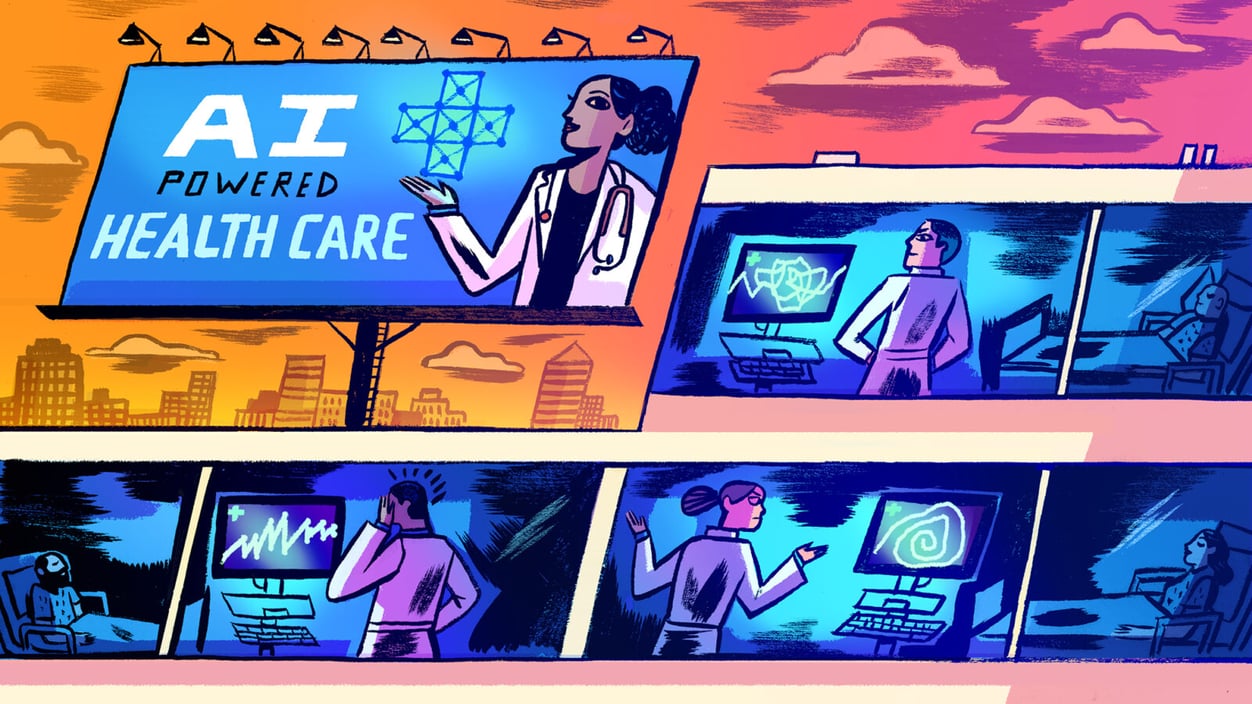Closer Look
The dirty truth about AI in medicine

Mike Reddy for STAT
In public, hospitals rave about artificial intelligence. They trumpet the technology in press releases, plaster its use on billboards, and sprinkle AI into speeches touting its ability to detect diseases earlier and make health care faster, better, and cheaper. But on the frontlines, caregivers complain AI models are unreliable and of limited value. Tools designed to warn of impending illnesses are inconsistent and sometimes difficult to interpret. Even evaluating them for accuracy, and susceptibility to bias, is still an unsettled science.
A new report aims to drag these tensions into the open through interviews with physicians and data scientists struggling to implement AI tools in health care organizations nationwide. STAT's Casey Ross spoke with data scientists, lawyers, bioethicists, and others from the research team about the biggest challenges, and how they are attacking them. "Each health system is kind of inventing this on their own," Michael Draugelis, a data scientist at Hackensack Meridian Health System in New Jersey, told Casey. Read more.
health
Workplace discrimination increases high blood pressure risk, study says
Experts have long known that discrimination broadly is associated with a risk for high blood pressure. A new study in the Journal of the American Heart Association deepens that research, finding that discrimination specifically within the workplace also is associated with a greater risk of high blood pressure in the U.S.
The study defined workplace discrimination as "unfair conditions or unpleasant treatment at work because of personal characteristics, particularly race, sex or age." The researchers analyzed data from a national survey that followed participants starting in 2004-2006 for about eight years. On a scale of low to high exposure to workplace discrimination, people who reported high exposure were 54% more likely to report high blood pressure during the follow-up period than those with low exposure. Those with intermediate exposure were 22% more likely. More research is needed to better understand the connection, as respondents self-reported their blood pressure, and those who did not participate in survey follow-up were more likely to be people of color, have lower education, and have a higher prevalence of high blood pressure.
health
Did pets help ease loneliness in the pandemic? Study reports it's inconclusive
Like so many others, I got a pet during the pandemic in 2020. During that trying time, my cat Walnut kept me company when I was lonely and forced me to get out of bed to feed her and clean her litterbox. A new study from PLOS ONE says that I'm not alone in this tight bond.
Researchers surveyed more than 4,000 people over the course of the pandemic on stress, loneliness, and for pet owners, their relationship with their pet. The results showed that cat and dog owners did grow closer to their pets from February 2020 through 2021. Dog owners consistently showed stronger decreases in stress and loneliness than cat owners and people without pets (Walnut and I aren't taking this personally). Pet owners broadly showed less romantic loneliness than people without pets. But it's a little complicated: Once researchers adjusted for confounders like income, gender, race, and the existence of other housemates, pet ownership itself did not mitigate stress or loneliness.
No comments